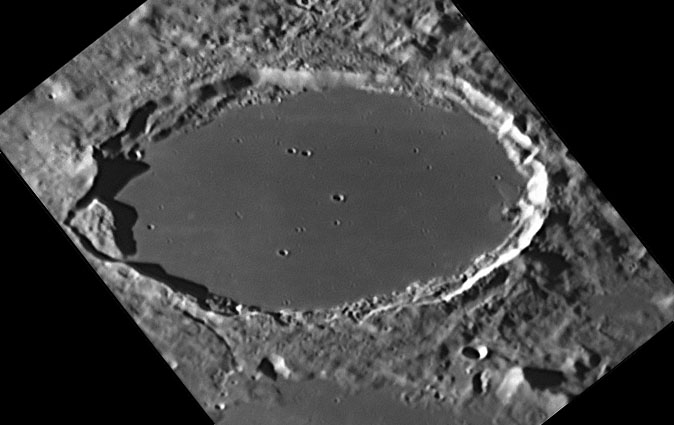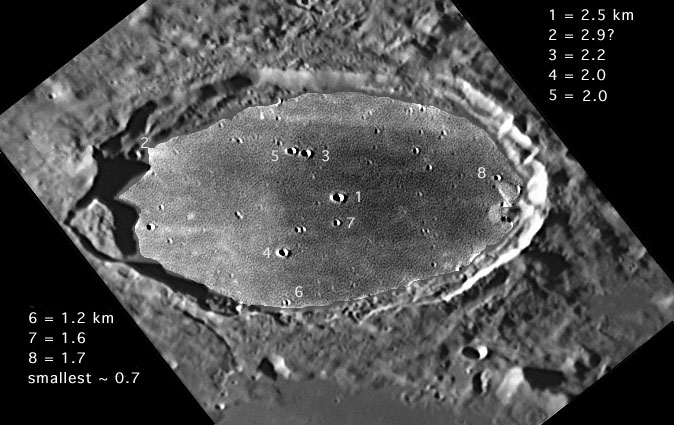Difference between revisions of "December 18, 2004"
| Line 1: | Line 1: | ||
__NOTOC__ | __NOTOC__ | ||
=Ho Hum, Plato Again= | =Ho Hum, Plato Again= | ||
| + | <!-- Start of content --> | ||
<table width="85%" border="0" align="center" cellpadding="6" cellspacing="2"> | <table width="85%" border="0" align="center" cellpadding="6" cellspacing="2"> | ||
<tr> | <tr> | ||
| Line 56: | Line 57: | ||
</table> | </table> | ||
<p> </p> | <p> </p> | ||
| + | <!-- End of content --> | ||
{{wiki/ArticleFooter}} | {{wiki/ArticleFooter}} | ||
Revision as of 18:30, 7 February 2015
Ho Hum, Plato Again
Image Credit: Wes Higgins |
|
Ho Hum, Plato Again Another spectacular image of Plato! Such superb images are getting almost routine now; at least for the very best lunar imagers. This view by Wes Higgins with his new 18" telescope shows many craters down to about 700 m in diameter (see mouseover). There are more craters visible in this image than in the Lunar Orbiter IV spacecraft view. In the mouseover image I selected just the floor of Plato and stretched it to reveal more clearly some of the smaller craters and to enhance the albedo features. This shows that the western half of the floor and the parts of the north and south portions are brighter than the center-east portion. This could be due to dusting by ray material, but there are no obvious sources, so probably the differences are compositional. Crater counts show that the floor is about 2.8 billion years old, compared to an age of about 3.1 to 3.6 b.y. for nearby Imbrium lavas. Technical Details: Related Links: Yesterday's LPOD: Roris Rump Tomorrow's LPOD: Half Moon in Broward |
|
Author & Editor: Technical Consultant: Contact Translator: A service of: |
COMMENTS?
Register, Log in, and join in the comments.





